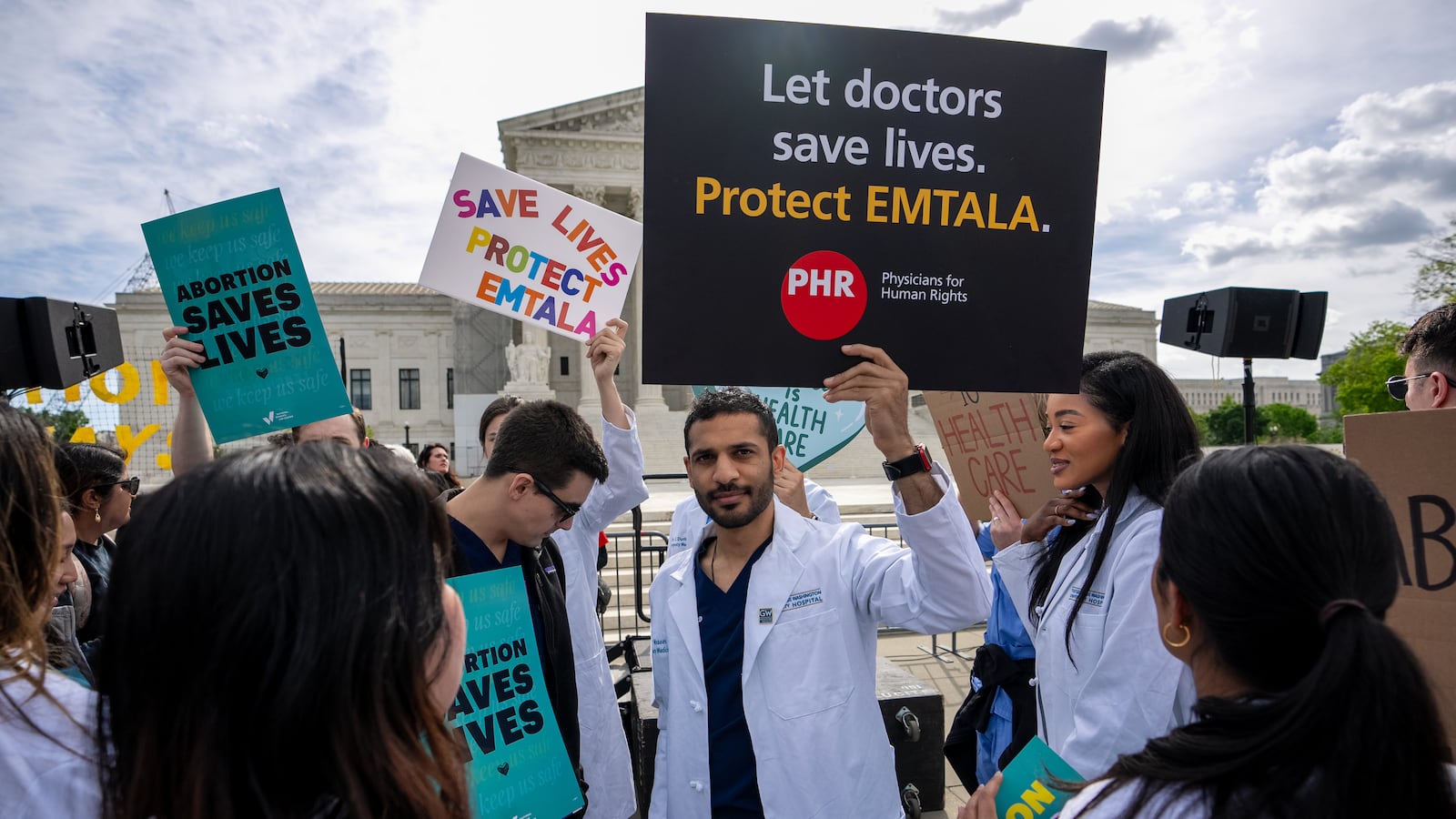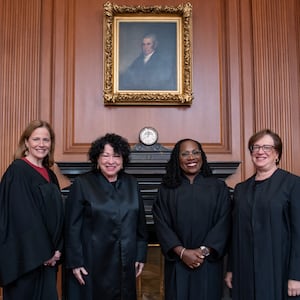Just a day after a U.S. Supreme Court opinion was leaked that Idaho would allow emergency abortions, the nation’s highest court has ruled that the state’s abortion ban will be reversed—in dire situations.
On Thursday, the Supreme Court decided in a 6-3 vote that abortions would be allowed when the pregnant mother’s health is in jeopardy, reported The Associated Press. Justice Alito penned a dissent and was joined by Justices Neil Gorsuch and Clarence Thomas.
Idaho politicians overwhelmingly passed a bill to completely ban abortion after six weeks of pregnancy following the overturn of Roe v. Wade in 2022. The only exceptions to terminate a pregnancy were rape and incest. Lawmakers in favor of the anti-abortion bill allowed for families to sue abortion providers. The Biden administration filed a lawsuit against Idaho, claiming that the state violated the Emergency Medical Treatment and Labor Act (EMTALA) to provide emergency care.
In May, women on the Supreme Court—including Trump-appointee Justice Amy Coney Barrett—rallied in the defense of emergency abortion. At the time, the justices ripped into Idaho’s attorneys, who claimed that the federal government was attempting to manipulate emergency care laws and override state legislation.
Idaho lawyer Joshua Turner said it was his “humble” opinion that the federal government shouldn’t interfere with women’s health, even if it involved death.
“It may be too ‘humble’ for women’s health,” Justice Elena Kagan snapped back.
Then, on Wednesday, the Supreme Court had a major legal faux pas when an opinion on the case was accidentally uploaded to the court’s website.
Vice President of Policy Dr. Avenel Joseph of the Robert Wood Johnson Foundation, the largest activist organization dedicated solely to health concerns, said the Supreme Court still has work to do and that Thursday’s decision is “far from a win.”
“Two years following the overturning of Roe v. Wade, the Supreme Court has failed to set a nationwide standard of reproductive health care,” she issued in a statement. “The Court’s dismissal of this case has left lower courts free to uphold state restrictions on women’s access to care, leading to both medical confusion and judicial ambiguity. Patients in Idaho can now resume accessing emergency abortion care without facing extreme measures of being airlifted across state lines or waiting in parking lots until their condition further deteriorates. But the uncertain fate of reproductive freedom continues to loom large for providers and patients across the country.”
“There is considerable work left to do to ensure that women and families across the country have access to the full range of reproductive healthcare services as well as healthcare coverage generally,” Joseph said in her statement Thursday. “But like physicians, it is imperative that policymakers also adhere to a ‘do no harm’ approach when it comes to health. We hope future Supreme Court decisions on reproductive rights will adhere to this principle and urge lawmakers at all levels to do all in their power to protect and defend reproductive freedom for everyone in America.”






